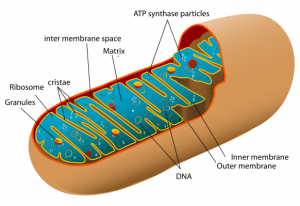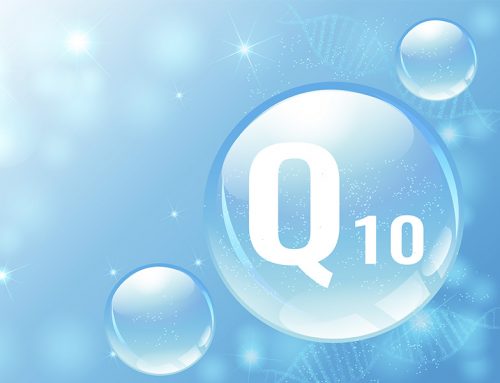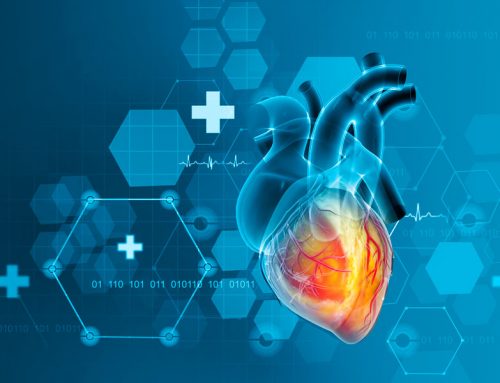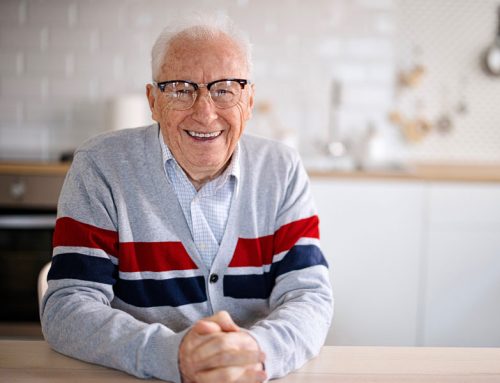During our senior years, our bodies’ production of Coenzyme Q10 declines with increasing age. Lower levels of cellular and tissue Coenzyme Q10 may accelerate mitochondrial dysfunction in particular and the progression of aging generally [Lopez-Lluch 2023].

The mitochondrion (plural form = mitochondria) is the cellular powerhouse that generates ATP energy. Heart disease and aging are associated with interrelationships between mitochondrial dysfunction and oxidative stress and low-grade systemic inflammation.
Mitochondrial dysfunction manifests itself in two ways [Lopez-Lluch 2023]:
- through unbalanced mitophagy and unbalanced autophagy
- through a decrease in the biosynthesis of mitochondria
Note: Mitophagy and autophagy are survival mechanisms employed by cells to save themselves. Mitophagy refers to the cells’ removal of damaged mitochondria to avoid cell death. Autophagy refers to the cells’ breaking down and recycling damaged cell components including damaged mitochondria.
Coenzyme Q10’s Importance in the Mitochondria
In the mitochondria, Coenzyme Q10 is an essential component of the electron transport chain. It also plays an important antioxidant role protecting membrane and mitochondrial DNA against oxidation [Lopez-Lluch 2023].
CoQ10 supplementation can be successful for some tissues and organs but, seemingly, not for others. Consequently, CoQ10’s role in the progression of aging is complex [Lopez-Lluch 2023].
In a lengthy review, Professor Guillermo Lopez-Lluch, University Pablo de Olavide, Sevilla, Spain, has discussed the anti-aging effects of Coenzyme Q10 in the following areas:
- Cardiovascular diseases
- Cognitive dysfunction
- Endothelial function
- Immune function and inflammation
- Metabolic diseases
Combined CoQ10 and Selenium Supplementation and Aging
In the KiSel-10 study of the combined CoQ10 and selenium supplementation on the heart health of elderly non-institutionalized Swedish citizens, Professor Urban Alehagen, University of Linköping, and his colleagues documented the following beneficial effects:
- slowed the shortening of leukocyte telomere length [Opstad 2022]
- increased serum SIRT1 concentrations in the active treatment group [Opstad 2023]
- reduced serum concentrations of bio-markers for systemic oxidative stress [Dunning 2023]
- affected five serum aging-related bio-markers in an anti-aging manner [Alehagen 2023]
It is noteworthy that all of the above-mentioned outcomes were associated with significantly reduced risk of cardiovascular mortality.
CoQ10 Supplementation and Reduced Low-Grade Systemic Inflammation
In 2023, Hou et al reported the results of a comprehensive review of randomized controlled trials of the effect of CoQ10 supplementation on blood bio-markers of inflammation: C-reactive protein, interleukin-6, and tumor necrosis factor-alpha. Their review provides evidence that CoQ10 supplementation reduces the level of inflammatory mediators in the general population. They propose CoQ10 supplementation of 300-400 mg per day to inhibit inflammatory factors [Hou 2023].
CoQ10 Supplementation Form: Ubiquinone or Ubiquinol?
In a 2023 review of 28 clinical studies conducted at the University of Graz, Austria, the pharmacologists Fladerer and Grollitsch made the following findings:
- Ubiquinone CoQ10 supplementation is associated with reduced cardiovascular death in patients with heart failure. This outcome is not reported for CoQH2.
- Supplementation dosages associated with cardiovascular benefits are much lower in ubiquinone CoQ10 studies than in ubiquinol CoQH2 studies.
- Only in ubiquinone CoQ10 studies have positive long-term effects reducing cardiovascular mortality been documented.
For the prevention and treatment of cardiovascular disease in patients with heart failure, Fladerer and Grollitsch have recommended supplementation with the ubiquinone form of Coenzyme Q10 rather than with the untested ubiquinol CoQH2 form [2023].
In a 2019 comparative bioavailability study, Lopez-Lluch and colleagues showed that a ubiquinone CoQ10 supplementation manufactured with a proper CoQ10 crystal dispersion process outperformed a ubiquinol product [Lopez-Lluch 2019; Mantle & Dybring 2020].
Conclusion: Coenzyme Q10 and Anti-aging Effects
As we get older, our bodies synthesize less and less Coenzyme Q10.
Elderly people need CoQ10 supplementation.
The body has several enzyme systems that convert ubiquinone Coenzyme Q10 to ubiquinol as needed. It is not necessary to take a ubiquinol supplement to get enough ubiquinol.
Some individuals absorb Coenzyme Q10 better than others.
The absorption and bioavailability of CoQ10 supplements varies widely, depending upon the manufacturer’s formulation.
It is money-wise and health-wise to buy a CoQ10 supplement with documented absorption and clinical efficacy.
Sources
Alehagen U, Alexander J, Aaseth JO, Opstad TB. Effects of an intervention with selenium and Coenzyme Q10 on five selected age-related biomarkers in elderly Swedes low in selenium: results that point to an anti-ageing effect. Cells. 2023;12:1773.
Aaseth J, Alexander J, Alehagen U. Coenzyme Q10 supplementation – In ageing and disease. Mech Ageing Dev. 2021 Jul;197:111521.
Dunning BJ, Alexander J, Aaseth JO, Alehagen U. Selenium and Coenzyme Q10 improve the systemic redox status while reducing cardiovascular mortality in elderly population-based individuals. Free Radical Biology and Medicine. 2023;204:207-214.
Fladerer JP, Grollitsch S. Comparison of Coenzyme Q10 (ubiquinone) and reduced Coenzyme Q10 (ubiquinol) as supplement to prevent cardiovascular disease and reduce cardiovascular mortality. Curr Cardiol Rep. 2023 Dec;25(12):1759-1767.
Hou S, Tian Z, Zhao D, Liang Y. Efficacy and optimal dose of Coenzyme Q10 supplementation on inflammation-related biomarkers: a grade-assessed systematic review and updated meta-analysis of randomized controlled trials. Mol Nutr Food Res. 2023;67(13):e2200800.
Lopez-Lluch G. Coenzyme Q-related compounds to maintain healthy mitochondria during aging. Advances in Protein Chem and Structural Biology. 2023;136:277-308.
López-Lluch G, Del Pozo-Cruz J, Sánchez-Cuesta A, Cortés-Rodríguez AB, Navas P. Bioavailability of Coenzyme Q10 supplements depends on carrier lipids and solubilization. Nutrition. 2019 Jan;57:133-140.
Mantle D, Dybring A. Bioavailability of Coenzyme Q10: an overview of the absorption process and subsequent metabolism. Antioxidants (Basel). 2020 May 5;9(5):386.
Opstad TB, Alexander J, Aaseth J, Alehagen U. Increased SIRT1 concentration following four years of selenium and Q10 intervention associated with reduced cardiovascular mortality at 10-year follow-up–sub-study of a previous prospective RCT. Antioxidants. 2023;12:759.
Opstad TB, Alexander J, Aaseth JO, Larsson A, Seljeflot I, Alehagen U. Selenium and Coenzyme Q10 intervention prevents telomere attrition, with association to reduced cardiovascular mortality-sub-study of a randomized clinical trial. Nutrients. 2022 Aug 15;14(16):3346.
The information presented in this review article is not intended as medical advice. It should not be used as such.









I came across this brilliant website while googling for CoQ10 dosages, and just want to say thank you for putting all this information together. I knew very little about CoQ10 except that it was good for cell energy and I thought I ought to start taking it. Now I know so much more and intend to spread the word! Once again, thank you!
Thank you, Susan,
Remember to take the Coenzyme Q10 capsule with a meal containing some fat for better absorption.
And, if you take more than 100 mg per day, best to take one capsule at breakfast and one at lunch rather than both capsules at the same meal.
Best regards,
Richard